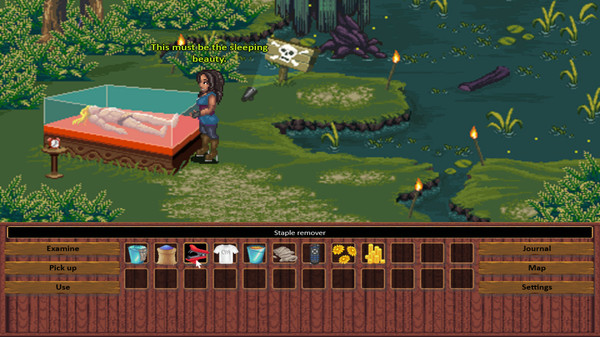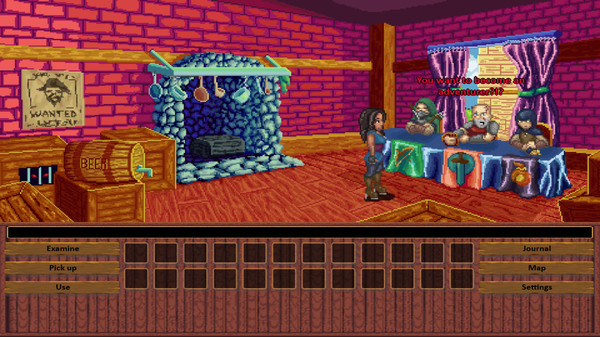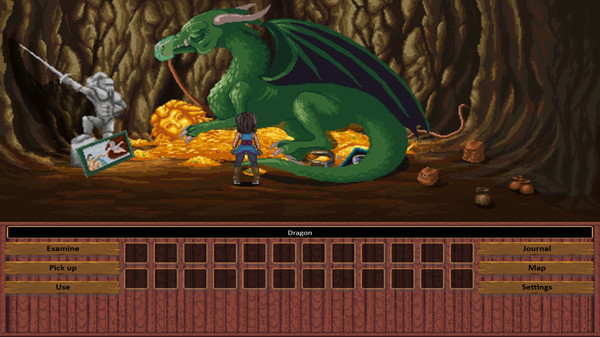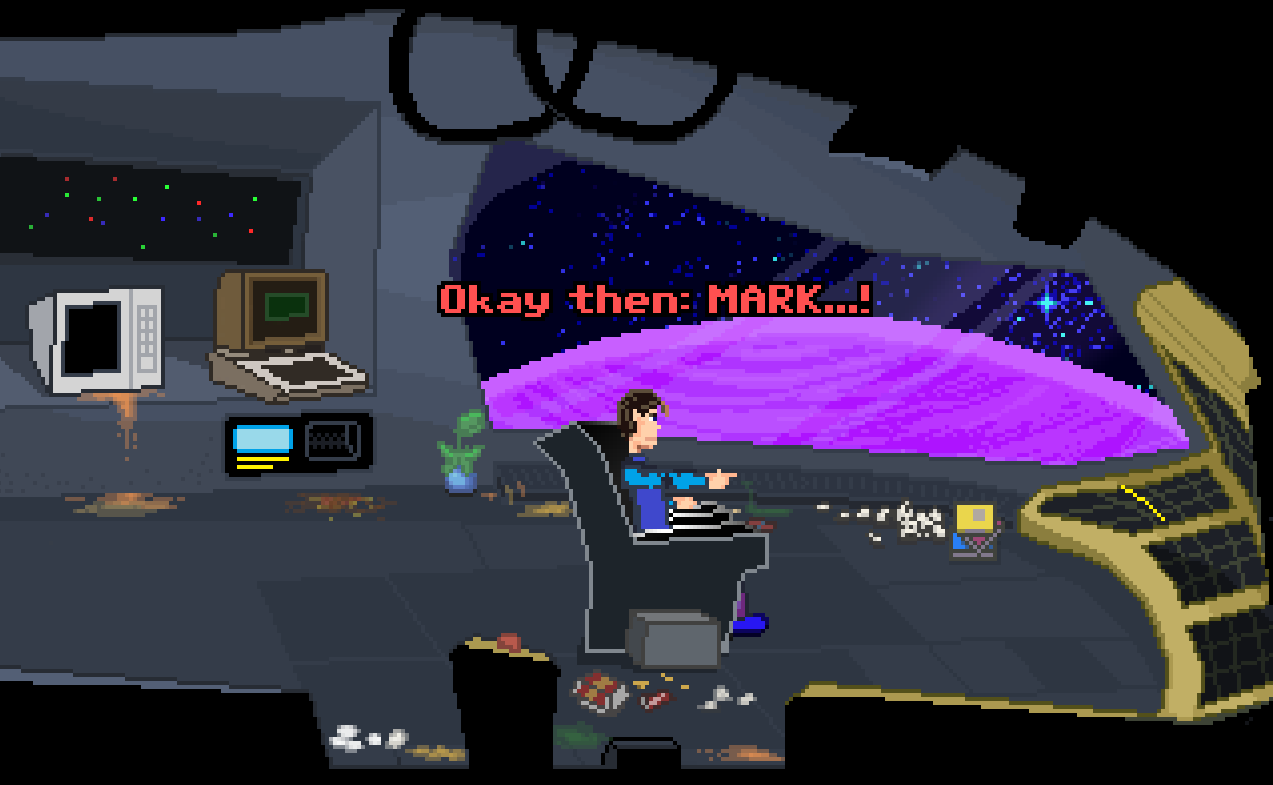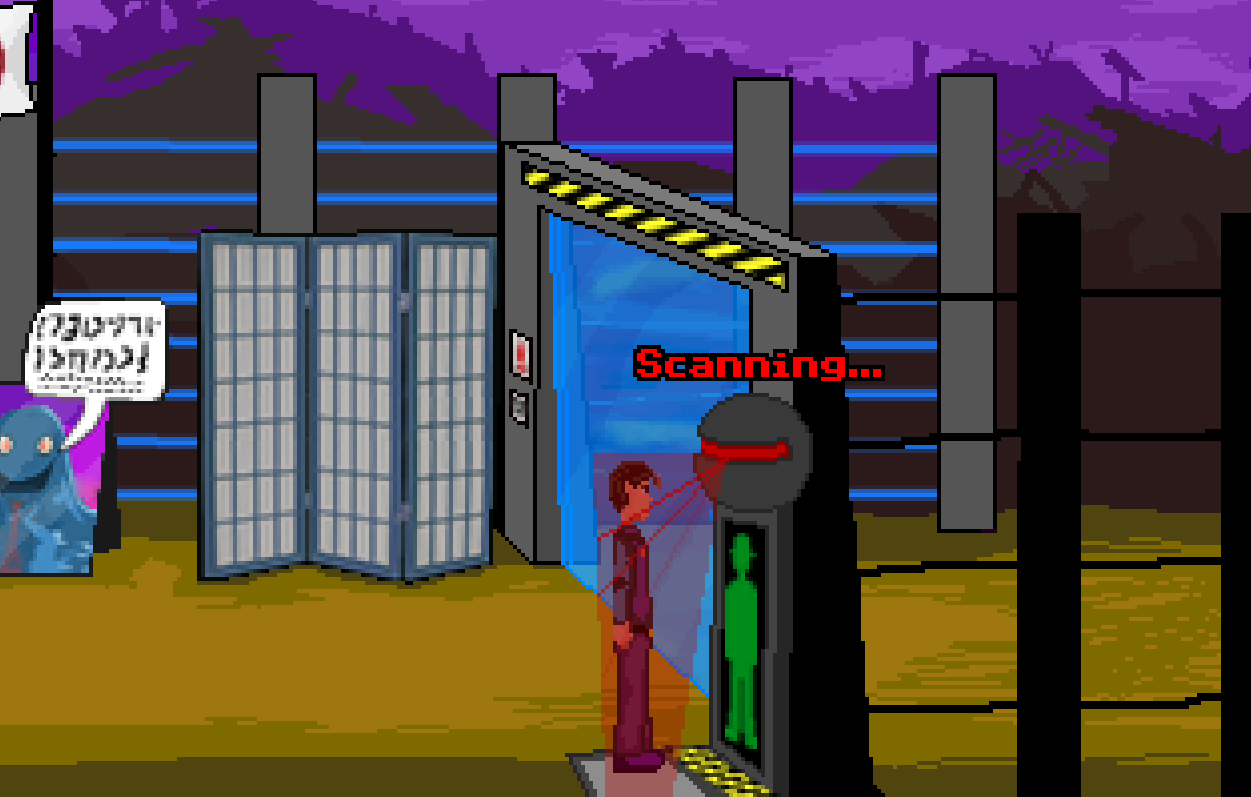-
Welcome to rpgcodex.net, a site dedicated to discussing computer based role-playing games in a free and open fashion. We're less strict than other forums, but please refer to the rules.
"This message is awaiting moderator approval": All new users must pass through our moderation queue before they will be able to post normally. Until your account has "passed" your posts will only be visible to yourself (and moderators) until they are approved. Give us a week to get around to approving / deleting / ignoring your mundane opinion on crap before hassling us about it. Once you have passed the moderation period (think of it as a test), you will be able to post normally, just like all the other retards.
You are using an out of date browser. It may not display this or other websites correctly.
You should upgrade or use an alternative browser.
You should upgrade or use an alternative browser.
The Random Adventure Game News Thread
- Thread starter Jaesun
- Start date
LESS T_T
Arcane
- Joined
- Oct 5, 2012
- Messages
- 13,582
![The Year of Incline [2014] Codex 2014](/forums/smiles/campaign_tags/campaign_incline2014.png)
A LOST ISLAND ON A FARAWAY MOON
From the creators of ASA: A Space Adventure and RoonSehv: NeTerra
About
Myha: Return to the Lost Island is a first person scifi adventure game developed by Denis Martin with Unreal Engine 4, based on the Black Cube series created by Simon Mesnard. It was funded on Kickstarter in November 2017.
Story
"2012. You are a cosmonaut from the country of Tongolia on planet Terra, sent to the Moon to identify a distress signal. It was supposed to be the one of Philippe Forté, an astronaut who disappeared the year before. But when you land and explore the moon, there is no more signal. Mysterious events occur: you discover a strange Black Cube artefact that teleports you to an unidentified island, in an all new world. This island is in another solar system, far away, on a moon called Myha. There, someone was obviously awaiting for you in order to test you... For what purpose?"
Features
- A cooperation between Simon Mesnard (ASA: A Space Adventure, Catyph, Kitrinos) and Denis Martin (RoonSehv)
- Created in Unreal Engine 4, the first game in the Black Cube series to benefit of full3D graphics
- This is a remake of the free original 2d game 'Myha' of 2016, with new puzzles, an improved island, increased lifetime, updated story, and more!
- All new Original Soundtrack composed by Olivier Maurey (Age of Sounds)
- Challenge your skills with the Black Cube series: rigorously explore the world by taking notes on a sheet of paper, and solve advanced difficulty puzzles to progress in the game
- 10+ hours of gameplay, animated opening and ending videos, English/French voices, immersive scifi story
- Joined
- Jan 1, 2015
- Messages
- 4,885



About
Myha: Return to the Lost Island is a first person scifi adventure game developed by Denis Martin with Unreal Engine 4, based on the Black Cube series created by Simon Mesnard. It was funded on Kickstarter in November 2017.
Story
"2012. You are a cosmonaut from the country of Tongolia on planet Terra, sent to the Moon to identify a distress signal. It was supposed to be the one of Philippe Forté, an astronaut who disappeared the year before. But when you land and explore the moon, there is no more signal. Mysterious events occur: you discover a strange Black Cube artefact that teleports you to an unidentified island, in an all new world. This island is in another solar system, far away, on a moon called Myha. There, someone was obviously awaiting for you in order to test you... For what purpose?"
Features
- A cooperation between Simon Mesnard (ASA: A Space Adventure, Catyph, Kitrinos) and Denis Martin (RoonSehv)
- Created in Unreal Engine 4, the first game in the Black Cube series to benefit of full3D graphics
- This is a remake of the free original 2d game 'Myha' of 2016, with new puzzles, an improved island, increased lifetime, updated story, and more!
- All new Original Soundtrack composed by Olivier Maurey (Age of Sounds)
- Challenge your skills with the Black Cube series: rigorously explore the world by taking notes on a sheet of paper, and solve advanced difficulty puzzles to progress in the game
- 10+ hours of gameplay, animated opening and ending videos, English/French voices, immersive scifi story
It says challenging puzzles. So I assume this is not a walking sim?
- Joined
- Jan 28, 2011
- Messages
- 100,702















CryptRat
Arcane

- Joined
- Sep 10, 2014
- Messages
- 3,626
This is out of early access :
LESS T_T
Arcane
- Joined
- Oct 5, 2012
- Messages
- 13,582
![The Year of Incline [2014] Codex 2014](/forums/smiles/campaign_tags/campaign_incline2014.png)
The Blacksad adventure game is coming September. Description of an "investigative narrative game with gameplay combining investigations, puzzles, quick time events (QTE) and multiple-choice dialog" is not encouraging:
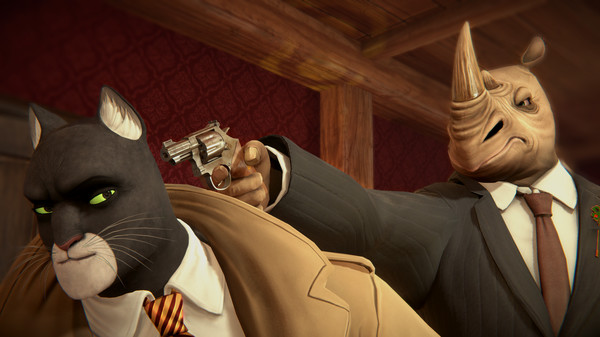
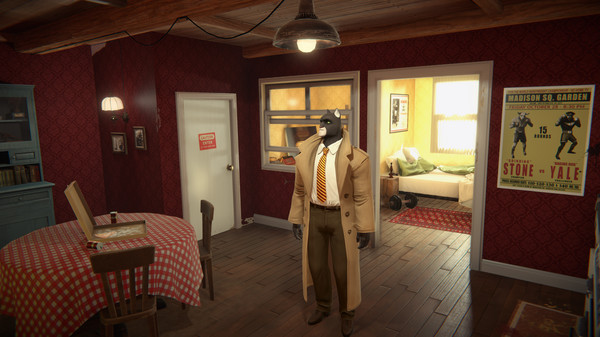


A dark corruption scandal in the heart of the New York City's underworld for charismatic detective John Blacksad!
The 50s, New York City: Joe Dunn, owner of a boxing club, is found dead.
Meanwhile, rising star Bobby Yale, due to take to the ring for the most important fight of his career, has mysteriously disappeared.
Sonia Dunn, Joe’s daughter, takes over the gym and must deal with its financial woes. She hires private detective John Blacksad to investigate Yale’s disappearance. This sinister case will take our investigator to the darkest, most dismal depths of New York.
With its anthropomorphic characters and its incredible 1950s feel, BLACKSAD: Under the Skin promises all the eerily dark adventure of a detective novel, just like the eponymous comic book series.
Conduct the investigation in your own way. Make use of your feline senses as you hunt for new clues. Make decisions on behalf of Blacksad and influence the outcome of the case.
Features:
- An official and all-new story for BLACKSAD, set in the comic book series’ unique world, perfectly recreated for gamers.
- An investigative narrative game with gameplay combining investigations, puzzles, quick time events (QTE) and multiple-choice dialog.
- Choices that directly influence the development of the character and the story's ending.
- More than 30 characters, including new faces and old favorites, each with their own story.
- An immersive world with a jazz soundtrack to rival the very best of Hollywood’s film noir.
- Fans of adventure games will love its gameplay and narration while fans of the comic book series will be thrilled to rediscover the characters and graphic style of this unique world.
- A dark world of anthropomorphic animals
LESS T_T
Arcane
- Joined
- Oct 5, 2012
- Messages
- 13,582
![The Year of Incline [2014] Codex 2014](/forums/smiles/campaign_tags/campaign_incline2014.png)
Return of Spanish publisher Erbe Software as a re-release label? The website says this new company is founded at the end of 2018, as a subsidiary of some financial company. (And their Twitter account is suspended?)
More releases are coming from this company:
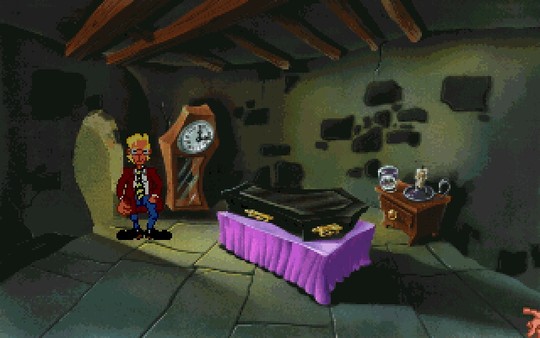
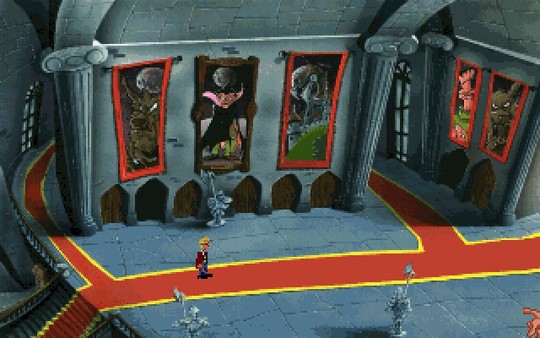
You are John Hacker, a common guy sent by a British property company to speak with 'Count Dráscula' about some lands. By chance you meet a gorgeous blond girl who is kidnapped by the Count himself, and you, John Hacker, set on a fun yet dangerous quest to rescue her.
A Spanish 2D classic point & click style adventure with tons of humor and an easy interface, now on Steam.
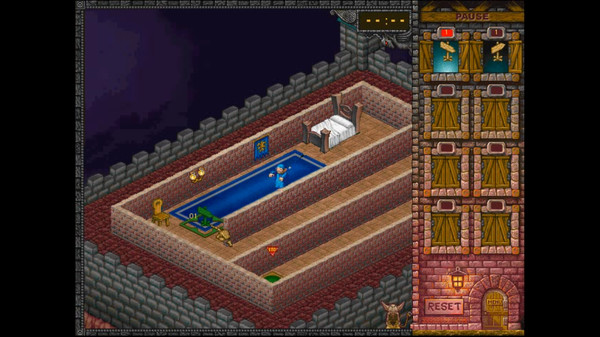
Sleepwalker is an isometric puzzle where a sleepwalking man in his pajamas needs to be guided to safety. The character walks automatically and cannot be controlled directly. Instead the player needs to put up signs and objects in the environment to help him around and to avoid contact with monsters. Signs are collected in a vertical bar on the right side of the screen. Farther levels include new types of items. The game contains about 100 levels.
And another entry from the comics based games, Spanish only:
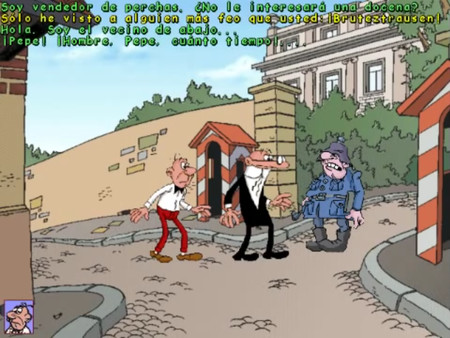
https://www.youtube.com/watch?v=vu5sC8kmLaI
Life of the Party
Arcane
- Joined
- May 8, 2018
- Messages
- 3,535
Nifft Batuff
Prophet
- Joined
- Nov 14, 2018
- Messages
- 3,794
LESS T_T
Arcane
- Joined
- Oct 5, 2012
- Messages
- 13,582
![The Year of Incline [2014] Codex 2014](/forums/smiles/campaign_tags/campaign_incline2014.png)
The man, Corey Cole himself in the comments:
Cool retrospective, thanks! I rate designing and developing Castle of Dr. Brain as among the best times I had at Sierra. One of these decades I'd like to make a similar game with more advanced puzzles and challenges. How about a 100x100x100 3D elevator maze? Kidding!
The Black Mirror games are $2.50 a pop on GOG this week. Are they worth it if I'm not super into horror but do like adventure games and exploration?
Black Mirror's 'k.
- Joined
- Mar 21, 2013
- Messages
- 491




- Joined
- Jan 28, 2011
- Messages
- 100,702















The Digital Antiquarian on Return to Zork: https://www.filfre.net/2019/05/return-to-zork/
It all combines to make Return to Zork one of the worst adventure games I’ve ever played. We’ve sunk to Time Zone levels of awful with this one. No human not willing to mount a methodical months-long assault on this game, trying every possibility everywhere, could possibly solve it unaided. Even the groundbreaking interface is made boring and annoying by the need to show everything to everyone and try every conversation stance on everyone, always with the lingering fear that the wrong stance could spoil your game. Adventure games are built on trust between player and designer, but you can’t trust Return to Zork any farther than you can throw it. Amidst all the hand-wringing at Activision over whether Return to Zork was or was not sufficiently Zorky, they forgot the most important single piece of the Infocom legacy: their thoroughgoing commitment to design, and the fundamental respect that commitment demonstrated to the players who spent their hard-earned money on Infocom games. “Looking back at the classics might be a good idea for today’s game designers,” wrote Computer Gaming World‘s Scorpia at the conclusion of her mixed review of Return to Zork. “Good puzzle construction, logical development, and creative inspiration are in rich supply on those dusty disks.” None of these, alas, is in correspondingly good supply in Return to Zork.
The next logical question, then, is just how Return to Zork‘s puzzles wound up being so awful. After all, this game wasn’t the quickie cash grab that Leather Goddesses of Phobos 2 had been. The development team put serious thought and effort into the interface, and there were clearly a lot of people involved with this game who cared about it a great deal — among them Activision’s CEO Bobby Kotick, who was willing to invest almost $1 million to bring the whole project to fruition at a time when cash was desperately short and his creditors had him on a short leash indeed.
The answer to our question apparently comes down to the poor reception of Leather Goddesses 2, which had stung Activision badly. In an interview given shortly before Return to Zork‘s release, Eddie Dombrower said that, “based on feedback that the puzzles in Leather Goddesses of Phobos [2] were too simple,” the development team had “made the puzzles increasingly difficult just by reworking what Doug had already laid out for us.” That sounds innocent enough on the face of it. But, speaking to me recently, William Volk delivered a considerably darker variation on the same theme. “People hated Leather Goddesses of Phobos 2 — panned it,” he told me. “So, we decided to wreak revenge on the entire industry by making Return to Zork completely unfair. Everyone bitches about that title. There’s 4000 videos devoted to Return to Zork on YouTube, most of which are complaining because the title is so blatantly unfair. But, there you go. Something to pin my hat on. I made the most unfair game in history.”
For all that I appreciate Volk sharing his memories with me, I must confess that my initial reaction to this boast was shock, soon to be followed by genuine anger at the lack of empathy it demonstrates. Return to Zork didn’t “wreak revenge” on its industry, which really couldn’t have cared less. It rather wreaked “revenge,” if that’s the appropriate word, on the ordinary gamers who bought it in good faith at a substantial price, most of whom had neither bought nor commented on Leather Goddesses 2. I sincerely hope that Volk’s justification is merely a case of hyperbole after the fact. If not… well, I really don’t know what else to say about such juvenile pettiness, so symptomatic of the entitled tunnel vision of so many who are fortunate enough to work in technology, other than that it managed to leave me disliking Return to Zork even more. Some games are made out of an openhearted desire to bring people enjoyment. Others, like this one, are not.
I’d like to be able to say that Activision got their comeuppance for making Return to Zork such a bad game, demonstrating such contempt for their paying customers, and so soiling the storied Infocom name in the process. But exactly the opposite is the case. Released in late 1993, Return to Zork became one of the breakthrough titles that finally made the CD-ROM revolution a reality, whilst also carrying Activision a few more steps back from the abyss into which they’d been staring for the last few years. It reportedly sold 1 million copies in its first year — albeit the majority of them as a bundled title, included with CD-ROM drives and multimedia upgrade kits, rather than as a boxed standalone product. “Zork on a brick would sell 100,000 copies,” crowed Bobby Kotick in the aftermath.
Perhaps. But more likely not. Even within the established journals of computer gaming, whose readership probably didn’t constitute the majority of Return to Zork‘s purchasers, reviews of the game were driven more by enthusiasm for its graphics and sound, which really were impressive in their day, than by Zork nostalgia. Discussed in the euphoria following its release as the beginning of a full-blown Infocom revival, Return to Zork would instead go down in history as a vaguely embarrassing anticlimax to the real Infocom story. A sequel to Planetfall, planned as the next stage in the revival, would linger in Development Hell for years and ultimately never get finished. By the end of the 1990s, Zork as well would be a dead property in commercial terms.
Rather than having all that much to do with its Infocom heritage, Return to Zork‘s enormous commercial success came down to its catching the technological zeitgeist at just the right instant, joining Sherlock Holmes Consulting Detective, The 7th Guest, and Myst as the perfect flashy showpieces for CD-ROM. Its success conveyed all the wrong messages to game publishers like Activision: that multimedia glitz was everything, and that design really didn’t matter at all.
If it stings a bit that this of all games, arguably the worst one ever to bear the Infocom logo, should have sold better than any of the rest of them, we can comfort ourselves with the knowledge that Quality does have a way of winning out in the end. Today, Return to Zork is a musty relic of its time, remembered if at all only for that “want some rye?” guy. The classic Infocom text adventures, on the other hand, remain just that — widely recognized as timeless classics, their clean text-only presentations ironically much less dated than all of Return to Zork‘s oh-so-1993 multimedia flash. Justice does have a way of being served in the long run.
CryptRat
Arcane

- Joined
- Sep 10, 2014
- Messages
- 3,626
Captain Disaster in: Death Has A Million Stomping Boots is free during one week.
I played the game a while ago and thought it was fun.
LESS T_T
Arcane
- Joined
- Oct 5, 2012
- Messages
- 13,582
![The Year of Incline [2014] Codex 2014](/forums/smiles/campaign_tags/campaign_incline2014.png)
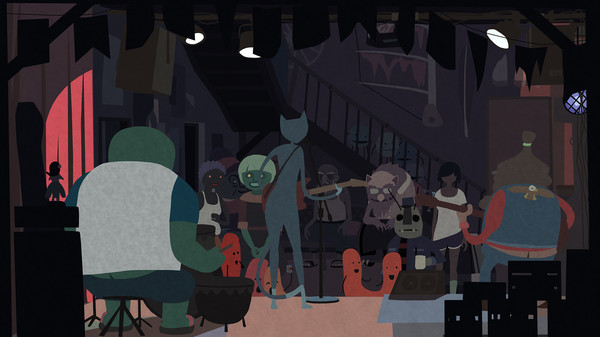
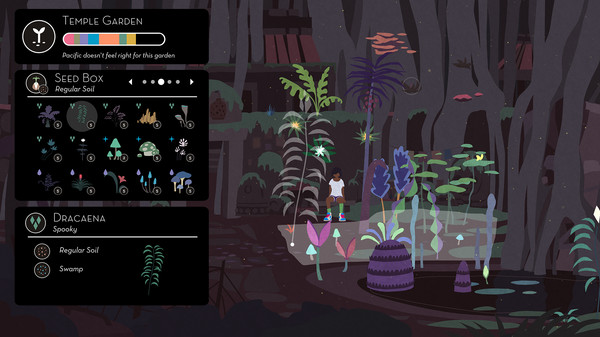
MUTAZIONE is an adventure game where the juicy personal drama is just as important as the high-stakes 'adventure' part of the story. It draws on the ensemble cast format of storytelling in favourite television shows such as Twin Peaks, Deep Space Nine, Grey's Anatomy, and Lost.
Over 100 years ago a great meteor named ‘Moon Dragon’ struck a tropical holiday resort. Most of the inhabitants perished but those who didn’t remained in the mutating environment and founded the small community of Mutazione.
Fast-forward to modern day, where you play as the protagonist Kai as she travels to this strange and secretive community to visit her ailing grandfather, Nonno. Explore the village, plant musical gardens, choose who you want to talk to, and find your way through an in-game week of small-town drama and scenic hangouts.
As you nurse your grandfather back to health, you make new friends, discover old betrayals, unravel long-kept secrets, and embark on a final spiritual journey to try to save everyone from the mysterious darkness at the heart of it all...
Highlights:
- Explore a lush, hand-illustrated world
- Meet an ensemble cast of loveable mutant characters
- Play through the story’s dramatic twists and turns
- Plant gardens to customise your own relaxing musical soundscape
Modron
Arcane
- Joined
- May 5, 2012
- Messages
- 11,414
Kathy Rain is free until May 7.
- Edit: Widget seems busted, so here's a directly link to the Steam page.
LESS T_T
Arcane
- Joined
- Oct 5, 2012
- Messages
- 13,582
![The Year of Incline [2014] Codex 2014](/forums/smiles/campaign_tags/campaign_incline2014.png)
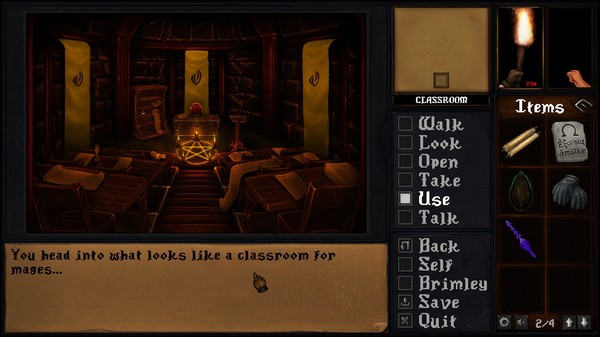
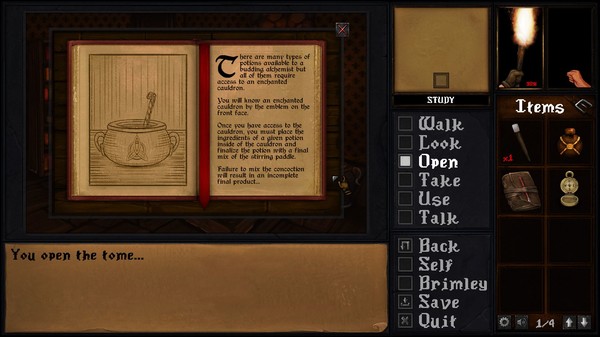
A "Point and Click" Adventure game in the classic style but with modern day elements.
Philip is a young British aristocrat with a taste for exploration. Denying his father's wishes, he sets sail for uncharted lands with the aid of his father's uptight servant, Brimley. All is well until his crew hits turbulent seas and his ship wrecks leaving only him and Brimley on a small island near the Middle East.
Instead of sending smoke signals for a hopeful rescue, he desires to explore the giant ziggurat which is, without a doubt, the lost Tower of Babel.
Danger, traps, wealth, and intrigue await within the Temple that time itself forgot...
F E A T U R E S
-Classic “point and click” UI that is intuitive and robust. Supports point and click, scroll wheel toggle, or keyboard hotkeys so you can play how you want.
-Integrated hint system: Talk to your companion, Brimley, at any time for hints or read his thoughts in his robust journal that writes as you explore!
-Challenging, yet logical, puzzles. Keep your wits about you and use clues, atmospheric hints, lore, and items to help you progress. There is no need to have great hand eye coordination but only have a sharp wit and an explorer's spirit to succeed!
-Beautiful hand drawn visuals: This is not 3d computer generated design nor asset store artwork. Only hand-crafted custom graphical art here.
-Immersive soundtrack, sound effects, and atmospheric track. The audio consists of a high quality soundtrack tailored to the mood of each area you explore. The sound effects bring out the feeling of being there along with the atmospheric track of the area you are in. As a bonus, you have full control over the volume of the music, sound effects, and atmospheric track with a built in audio mixer slider panel.
-Deep lore and engaging story: learn about the past as you try to survive the present. Unravel the mystery of the Tower as you progress.
-Even enjoy failure as the death sequences are fun and entertaining to watch (and humorous!)
-Lots of unique content: No cookie cutter game play or repetitious puzzles and terrain. Puzzles and rooms are unique and diverse. You should never get bored.
-Cheeky and interactive responses to your choices in game.
DEEP
LORE
LORE
Boleskine
Arcane
- Joined
- Sep 12, 2013
- Messages
- 4,045
http://adventurexpo.org/adventurex-2019-announcement/
AdventureX will return to the British Library in London on November 2nd & 3rd 2019. Once again, we will be running in partnership with the British Library as part of International Games Week.

Ticketing
AdventureX 2019 will be a ticketed event again. However, we have decided not to run a Kickstarter this year. Tickets will go on sale from the British Library box office later in the year. But before they do, you’ll have the opportunity to buy weekend passes a discount from us in early July.
No Kickstarter doesn’t mean there will be no rewards, though! We will produce AdventureX Goodie-Bags that can be collected at the event. The Goodie-Bags will feature limited edition mementos of the event, like our ever-popular pin-badges.

2018 Pin Badges designed by Chess Pearson.
As usual, we will still be seeking sponsorship from developers and publishers with an interest in promoting narrative gaming. For more information about becoming a sponsor, please contact tom@adventurexpo.org.
Applications are open!
We now are accepting applications to exhibit and speak at AdventureX 2019. Applications open Monday 13th May and will close on Sunday 9th June 2019. We always aim to programme a diverse range of speakers and exhibitors, looking at interactive narrative from original angles. If you have something new to say, please get in touch!
It is free to exhibit games at AdventureX! For more information about exhibiting, check out the Reasons To Exhibit At AdventureX.
Call for Artists!
We’re also looking for a new artist to create the artwork that will adorn our 2019 marketing materials and Goodie-Bag rewards. Click here for more information.
LESS T_T
Arcane
- Joined
- Oct 5, 2012
- Messages
- 13,582
![The Year of Incline [2014] Codex 2014](/forums/smiles/campaign_tags/campaign_incline2014.png)
Daedalic opens a new studio in Munich, and it will work on a new game from Jan Müller-Michaelis (Poki), the creator of Deponia: https://www.gamesindustry.biz/articles/2018-02-14-daedalic-entertainment-opens-new-munich-office
Huh, his new game was exposed in March. It's one of recipients of Bayern's funding program: https://www.fff-bayern.de/fileadmin...ldungen/Vergabemeldungen_Games_Maerz_2019.pdf
It's.. an orc restaurant management game with dungeon crawling.
Google translation:
Concept development Games
[...]
Orc's Kitchen - EUR 20,000
Applicant: Daedalic Entertainment Bavaria GmbH, Munich
Platforms: Windows, consoles from Sony, Microsoft and Nintendo
Restaurant simulation with dungeon crawler, multi and singleplayer mode. As Ork Bob, the player opens a restaurant for the rogues of fantastic worlds he has to lead and grow. He procures the cooking ingredients from strategic dungeons, takes orders and entertains the guests. On the three different levels appropriate skills are required: In the restaurant, coordination and overview are crucial, in the procedurally generated dungeons fights must be passed, ingredients are found, collected, taken. In the restaurant's office, there is a meta-level that requires planning skill. For several players there is a co-op mode.







